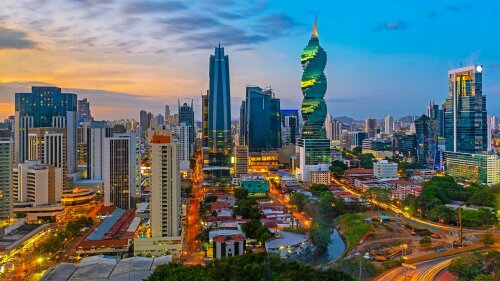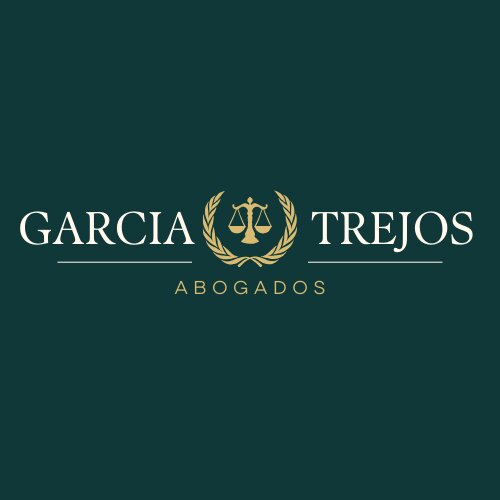Best Child Custody Lawyers in Panama
Share your needs with us, get contacted by law firms.
Free. Takes 2 min.
Free Guide to Hiring a Family Lawyer
Or refine your search by selecting a city:
List of the best lawyers in Panama
About Child Custody Law in Panama
Child custody in Panama is governed by the country's family law, which prioritizes the welfare and best interests of the child. This usually involves determining which parent will maintain custodial rights while establishing visitation rights and responsibilities for the non-custodial parent. The Panamanian legal system seeks to ensure that both parents remain involved in the child's life, unless particular circumstances dictate otherwise.
The decisions regarding child custody are made by family courts, which consider various factors, including the child's age, health, emotional ties, and the living situation each parent can provide. If parents are unable to reach an agreement on their own, the court will take the necessary steps to ensure a suitable environment for the child.
Why You May Need a Lawyer
While it is possible to handle child custody matters independently, numerous reasons may necessitate legal assistance:
- Complex disputes: In cases where there is disagreement over custody or visitation, a lawyer can help mediate and negotiate a fair arrangement.
- Legal representation: Having legal counsel is beneficial when navigating court proceedings, ensuring that your rights and those of your child are protected.
- Understanding legal jargon and procedures: A lawyer can assist in interpreting legal documents and procedures, helping to streamline the process and avoid potential pitfalls.
- Changing custody agreements: When circumstances change, a lawyer can help modify existing custody agreements to better serve the child's interests.
- Allegations of abuse or neglect: In cases involving accusations of abuse or neglect, legal representation is crucial to appropriately address the charges and protect the child's welfare.
Local Laws Overview
Several key aspects of Panamanian law relate to child custody:
- Best Interest of the Child: All custody decisions are based on what is determined to be in the best interest of the child, considering their well-being and stability.
- Joint Custody: Panamanian law often favors joint custody arrangements, encouraging both parents to remain actively involved in their child's life.
- Mediation: Before court intervention, parents may be required to attend mediation sessions to attempt to reach a custody agreement amicably.
- Enforcement of Custody Orders: Breaching a custody agreement can lead to legal consequences including fines or changes to the custody arrangement.
- International Considerations: In cases involving international elements, Panama adheres to international treaties regarding child abduction and custody rights, such as the Hague Convention.
Frequently Asked Questions
What is the primary factor considered in Panamanian child custody cases?
The primary factor considered is the best interest of the child, which includes considerations such as the child's safety, emotional and psychological needs, and the environment offered by each parent.
Can grandparents obtain custody rights in Panama?
Yes, grandparents or other relatives can be granted custody if it is determined to be in the best interest of the child, typically in situations where neither parent is deemed fit or able to care for the child.
How are custody decisions made if parents live in different countries?
International custody cases take into account international treaties like the Hague Convention to resolve issues related to jurisdiction and enforcement of custody orders.
How can a custody arrangement be modified?
An existing custody arrangement can be modified by petitioning the family court, usually requiring evidence of a significant change in circumstances that affects the child's best interests.
Is it necessary to have a lawyer for custody agreements?
While not legally required, having a lawyer can help ensure that custody agreements are fair, legally sound, and effectively enforced.
What should I do if my ex-partner is not adhering to the custody agreement?
Document any violations of the custody agreement and may seek enforcement through the court, which could include legal consequences for the non-complying party.
Are child custody hearings public in Panama?
Child custody hearings are generally private to protect the child's best interests and the family's privacy.
What are visitation rights?
Visitation rights allow the non-custodial parent to spend time with their child according to a schedule determined by mutual agreement or court order.
How does domestic violence affect custody decisions?
Instances of domestic violence are taken seriously and can influence custody decisions to ensure the child's safety and well-being.
What role does a child's preference play in custody decisions?
Depending on the child's age and maturity, their preferences may be considered by the court, but ultimately the decision will focus on their best interest.
Additional Resources
For further information and assistance, consider reaching out to these resources:
- Panamanian Family Court: A primary institution to handle custody and family law cases.
- Ministry of Social Development (MIDES): Provides support and guidance in family-related legal matters.
- Legal Aid Organizations: Offer assistance for those unable to afford legal representation.
- Licensed Family Lawyers: Hiring a reputable family lawyer can offer personalized guidance specific to your case.
Next Steps
If you are considering legal assistance for a child custody matter in Panama, consider the following steps:
- Consult a Lawyer: Schedule a consultation with a family lawyer to discuss your case specifics and explore your options.
- Collect Documentation: Gather all relevant documentation including current custody arrangements, evidence of any violations, and any communication with the other parent.
- Attend Mediation: Be open to mediation sessions as they can help resolve disputes without the need for lengthy court proceedings.
- File a Petition: Work with your lawyer to file any necessary petitions or motions with the family court.
- Prepare for Court: If your case proceeds to court, be prepared with all necessary documentation and an understanding of the process.
Seeking expert advice and guidance is crucial to ensure that your child's best interests are upheld in any custody proceedings.
Lawzana helps you find the best lawyers and law firms in Panama through a curated and pre-screened list of qualified legal professionals. Our platform offers rankings and detailed profiles of attorneys and law firms, allowing you to compare based on practice areas, including Child Custody, experience, and client feedback.
Each profile includes a description of the firm's areas of practice, client reviews, team members and partners, year of establishment, spoken languages, office locations, contact information, social media presence, and any published articles or resources. Most firms on our platform speak English and are experienced in both local and international legal matters.
Get a quote from top-rated law firms in Panama — quickly, securely, and without unnecessary hassle.
Disclaimer:
The information provided on this page is for general informational purposes only and does not constitute legal advice. While we strive to ensure the accuracy and relevance of the content, legal information may change over time, and interpretations of the law can vary. You should always consult with a qualified legal professional for advice specific to your situation.
We disclaim all liability for actions taken or not taken based on the content of this page. If you believe any information is incorrect or outdated, please contact us, and we will review and update it where appropriate.
Browse child custody law firms by city in Panama
Refine your search by selecting a city.















